#FordExplorer
Ford Unveiled the 2025 Explorer With a New Look and Better Tech
The Ford Explorer has been among the top-selling SUVs for years, but the current generation is a bit stale. Ford’s solving that in 2025 with a refreshed Explorer that brings a new face, an updated interior, and new tech.
2022 Ford Explorer Timberline Review – Off-Road Ready, If Needed
The 2022 Ford Explorer Timberline is aimed at a very specific audience – and if you aren’t part of that audience, other Explorer trims will better suit you.
If you are in that specific audience, this Explorer can do a few things that the other trims likely cannot.
This trim is the perfect example of how use case can dictate vehicle purchase decisions.
Ford Announced a New Explorer EV, But It Isn't Coming Here
Ford recently announced a brand-new electric Explorer, but it’s not yet slated for a U.S. release. The almost $50,000 EV is based on VW’s MEB platform and will be built at Ford’s shiny new EV manufacturing facility in Germany.
The NHTSA is Investigating Certain Ford Explorers for Windshield Trim Detachment
Major automakers deal with recalls all the time. The National Highway Traffic Safety Administration (NHTSA) monitors complaints on safety and other issues and works with automakers to start the recall process if a defect is found. Ford has had plenty of recalls to deal with in the last few years, including one related to the Mustang Mach-E’s glass roof detaching. The automaker may be looking at another glass-related recall if the results of a recent NHTSA investigation reveal a safety problem.
Abandoned History: Ford's Cruise-O-Matic and the C Family of Automatic Transmissions (Part VI)
Ford Recalling 661,000 Explorer SUVs for Real This Time
Ford Motor Co. is recalling over 660,000 2016-2019 model year Explorer sport utility vehicles over the suspect roof rails the company initially claimed were probably fine. The National Highway Traffic Safety Administration got involved last year, following a string of complaints of the rail cover loosening and sometimes being jettisoned from the vehicle, and recommended the automaker bring them in for repairs.
But Blue Oval felt that was unnecessary, claiming the odds of one decoupling were extremely low and likely to be battened down before anything happens. Besides, they’re just fiddly little pieces of trim and unlikely to do much damage. Obviously, opinions have changed since then with documentation from the NHTSA confirming Ford is moving ahead with the mostly voluntary recall.
2021 Ford Explorer Timberline Looks Reasonably Ruggedized
Ford is introducing a new trim level for the Explorer, targeting both outdoorsy types and those who desperately want to be but only manage to spend a couple of weekends at Kampgrounds of America.
The 2021 Ford Explorer Timberline delivers a mix of visual accouterments and practical components that should actually make the SUV better off-road.
Don’t expect it to keep pace with a Raptor pickup, however. Despite the Timberline’s menacing new grille, skid plates, unique 18-inch wheels, and Bridgestone Dueler all-terrain tires, it’s not a Baja buggy waiting to be jumped off the next sand dune — though it may be the best option for Explorer shoppers who don’t want to spend oodles on aftermarket parts.
Ford Recalling 28,000 Vehicles Over Fire, Rolling Risk
A selection of Ford and Lincoln vehicles have been included in a pair of upcoming recalls. The first is involves 2020 Ford Explorer and Lincoln Aviator models suffering from a defective driveshaft. The weld seam is reportedly faulty on some vehicles and can split apart, resulting in a suddenly absent mechanical connection between the transfer case and rear axle. Drivers should be on guard for unintended vehicle creep or a sudden loss of power while moving. In truly bad instances, Ford warned that the driveshaft could come into heavy contact with the fuel tank — complicating things by introducing the always unpopular fire risk.
The second recall involves a link shaft bracket that may snap prematurely and impacts the 2014 Ford Edge as well as 2014-2016 Explorer and Taurus models. Drivers might notice a sudden loss of power while moving or the ability to safely place the vehicle in park. As this creates a roll-away risk, drivers should exercise caution and try to keep their vehicles parked on a level plane until it can be examined.
Buy/Drive/Burn: American Family-hauling SUVs in 2005
At the Los Angeles Auto Show this week, Chevrolet announced the rebirth of the Trailblazer (note the spelling) for the 2021 model year. However, unlike its predecessor, it’s now a compact, three-cylinder CUV. The comments got a bit heated, pitting the GMT 360 version against its contemporary competition.
So let’s settle this. It’s time for a Buy/Drive/Burn in 2005.
Ford Takes a Third-quarter Hit, Top Brass Talk Botched Explorer Launch
Analysts predicted a less-than-stellar quarter for Ford Motor Company, so it was not a shock to see turbulence in the company’s third-quarter financials. The company’s net income dropped 57 percent in Q3 2019, the result of currency changes and restructuring efforts. Revenue ($37 billion) was down on a global scale, shrinking 2 percent. Earnings per share shrunk from 25 cents to 11 cents.
While the automaker finds itself in the midst of ongoing cost-cutting and a reorganization of its regional businesses, the North American launch of a key product didn’t go as planned, forcing Ford CEO Jim Hackett to claim the company’s efforts fell below expectations.
Ford's 2020 Explorer Hasn't Left the Woods Just Yet, Report Claims
Plagued by reports of manufacturing defects and post-production emergency surgery at Flat Rock Assembly, Ford’s Chicago-built 2020 Explorer and Lincoln Aviator platform mate are a weight placed on the shoulders (and career) of CEO Jim Hackett. It’s also weighing down the company’s stock, analysts claim.
While the automaker said earlier this month that Explorer supply was on the upswing, with new vehicles now shipping directly to dealers, it seems Bill Shatner hasn’t shot all of the gremlins off the wing of this flight.
Quality Issues Leads to Bumpy Takeoff for 2020 Ford Explorer
Sales figures are now rolling in from the Detroit Three automakers, with Ford now reporting third-quarter volumes. While Matthew Guy will have a roundup for you later today, we can share that Ford’s most recent sales quarter was not a stellar affair, made worse by the bungled launch of a high-profile model.
As we’ve told you already, a myriad of quality issues kept thousands of Chicago-built Explorers and Lincoln Aviators from reaching dealers this summer, with the afflicted rides instead travelling by truck to Michigan’s Flat Rock Assembly for fixing before buyers could take delivery. As you’d expect, this impacted the Explorer’s sales performance and further weighed down a brand that saw its sales fall 5.6 percent in the last quarter.
Report: Widespread 2020 Ford Explorer and Lincoln Aviator Quality Issues Has Automaker Scrambling
There’s no doubt the next-generation Ford Explorer and reborn Lincoln Aviator are very important vehicles for Ford Motor Company. Advanced, stylish, and packing lofty MSRPs and projected volume that’s sure to make the Blue Oval tons of cash, the worst thing that could occur to these vehicles is a botched rollout served with a side of quality-related stigma.
It seems that’s exactly what’s happening.
While the two platform mates, just now appearing on dealer lots, have already been subject to recalls related to manually-adjusted seatbacks, missing manual park release covers, and instrument panel issues, a number of other problems is keeping Explorers and Aviators away from buyers. Ford is reportedly working overtime to fix the unspecified defects.
12 MPG in 10 Years: Ford Explorer Hybrid's Fuel Economy Figures Come to Light
Barring the development of electric and plug-in hybrid vehicles, the slow march towards better fuel economy, especially in larger vehicles, has been just that: slow. Yet incremental improvements continue, and the latest large family vehicle to see a darker shade of green is Ford’s new-for-2020 Explorer.
Now bearing rear-drive architecture it shares with the Lincoln Aviator, the Explorer drives into its sixth generation with a hybrid and high-performance model in tow. The greenest of the bunch, unlike the Aviator, is not a plug-in proposition, so fuel economy gains are limited. It’s up to buyers to decide if the just-released EPA numbers are worth the extra coin.
First Drive: 2020 Ford Explorer - Premium Pricing
For four generations, Ford offered the Explorer with rear-wheel drive as standard. It went front-drive for the fifth.
Now, the standard drivetrain is rear-drive again. Back to basics, so to speak.
Except, not really. First-gen Explorers didn’t have infotainment systems, or 10-speed automatic transmissions, or available hybrid powertrains. Those staples of modernity have been added over the years.
Whether it was out of nostalgia or an attempt to capitalize on the resurgence of dinosaur-themed tent-pole cinema, or simply an attempt to make us overfed journos get a quick guffaw, Ford PR trotted out an early ‘90s example, complete with Jurassic Park livery, for us to gawk at (rumor has it we may be able to get behind the wheel someday. Fingers crossed). I opened the door and was greeted with what was the new-car smell of my youth. This Explorer needed no 10-speed, no Sync, no hybrid, to charm. Could the 2020 version do the same as it returned to a rear-drive base?



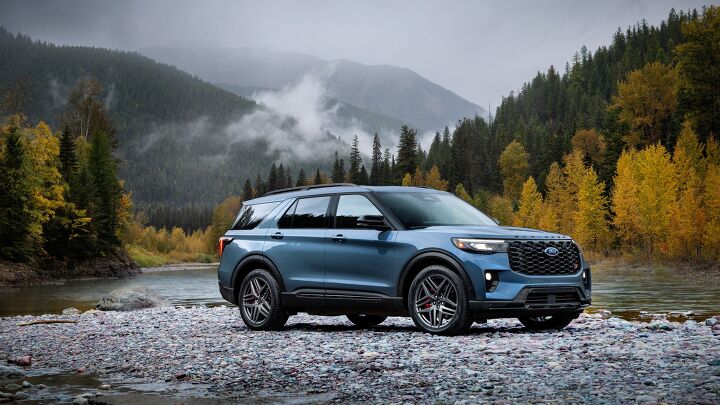

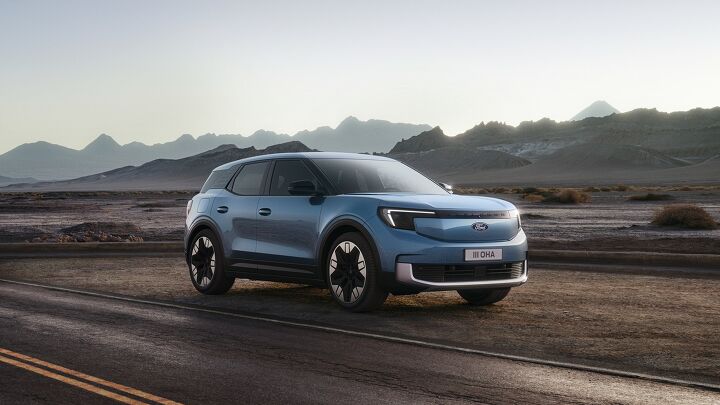
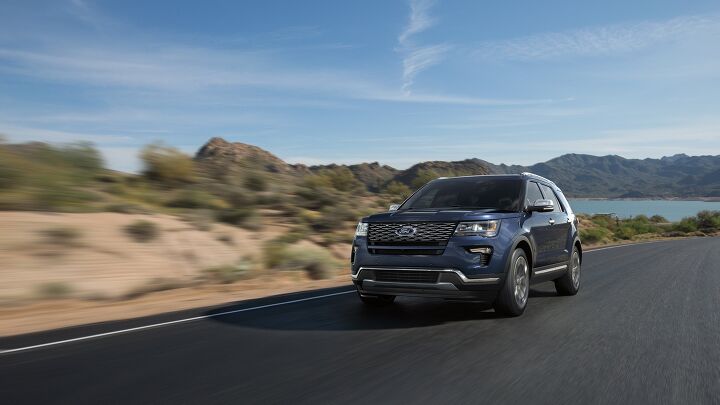
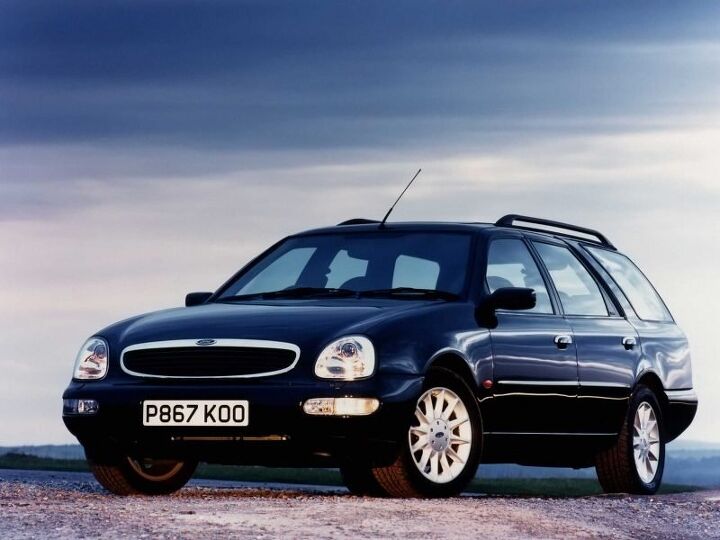
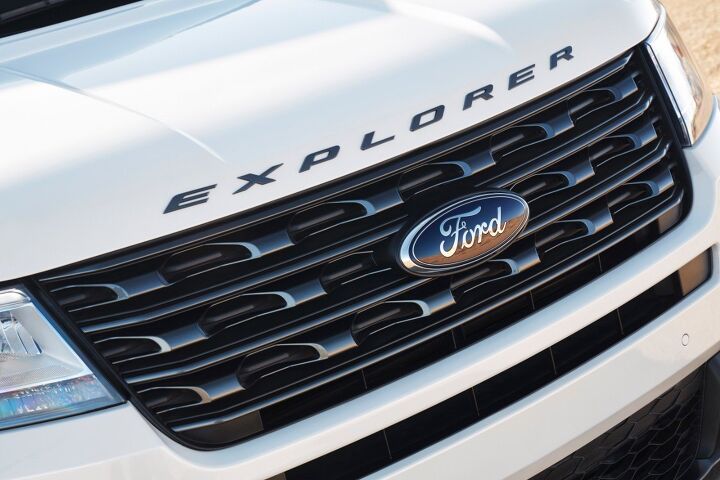

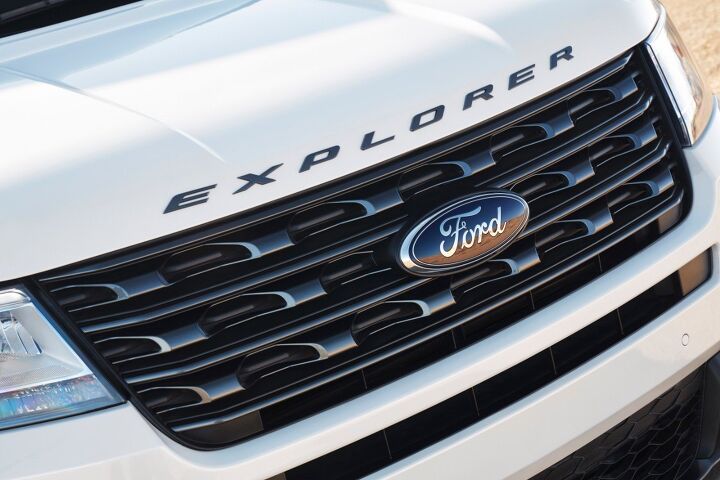
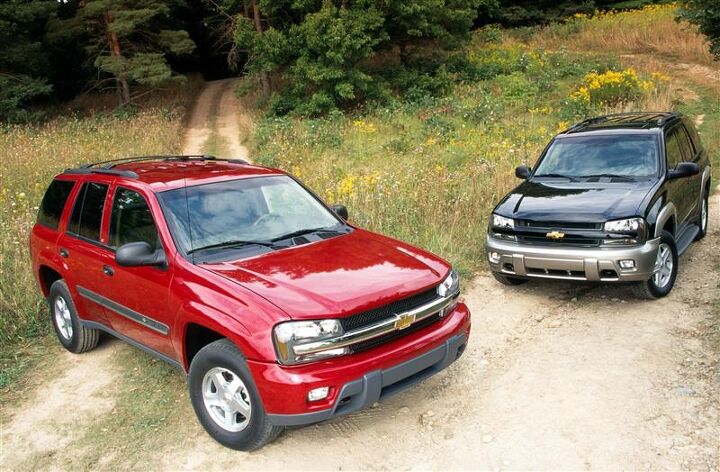

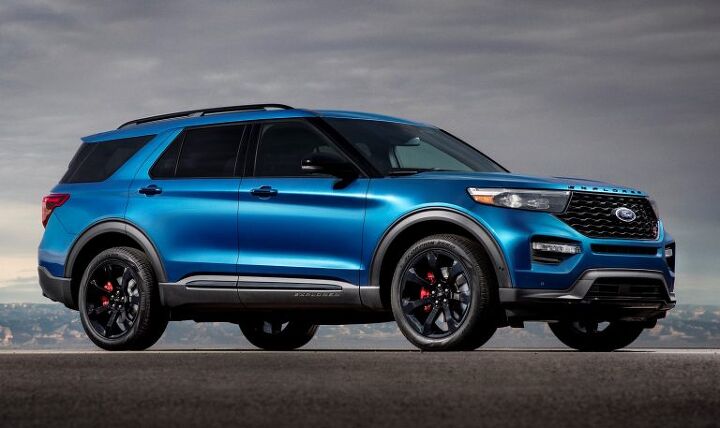
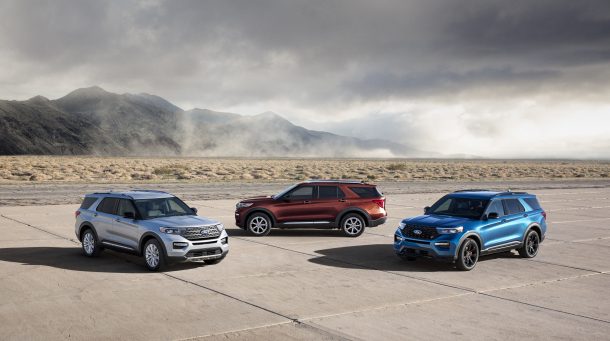

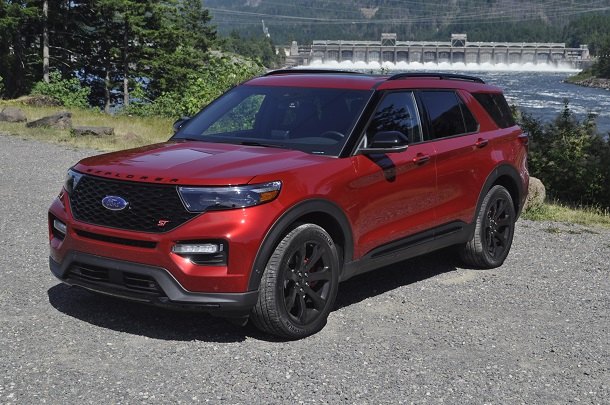












Recent Comments